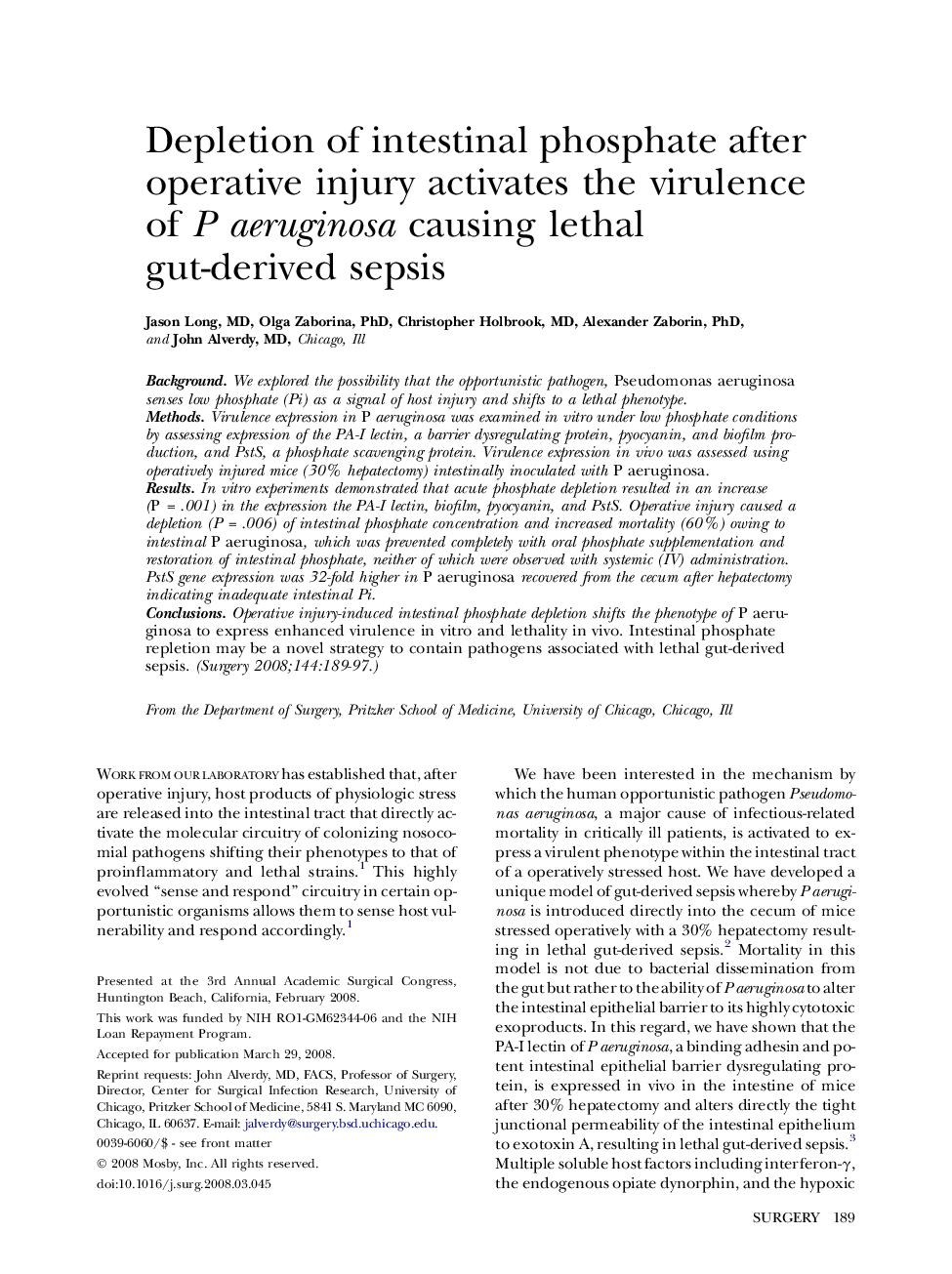| Article ID | Journal | Published Year | Pages | File Type |
|---|---|---|---|---|
| 4309453 | Surgery | 2008 | 9 Pages |
BackgroundWe explored the possibility that the opportunistic pathogen, Pseudomonas aeruginosa senses low phosphate (Pi) as a signal of host injury and shifts to a lethal phenotype.MethodsVirulence expression in P aeruginosa was examined in vitro under low phosphate conditions by assessing expression of the PA-I lectin, a barrier dysregulating protein, pyocyanin, and biofilm production, and PstS, a phosphate scavenging protein. Virulence expression in vivo was assessed using operatively injured mice (30% hepatectomy) intestinally inoculated with P aeruginosa.ResultsIn vitro experiments demonstrated that acute phosphate depletion resulted in an increase (P = .001) in the expression the PA-I lectin, biofilm, pyocyanin, and PstS. Operative injury caused a depletion (P = .006) of intestinal phosphate concentration and increased mortality (60%) owing to intestinal P aeruginosa, which was prevented completely with oral phosphate supplementation and restoration of intestinal phosphate, neither of which were observed with systemic (IV) administration. PstS gene expression was 32-fold higher in P aeruginosa recovered from the cecum after hepatectomy indicating inadequate intestinal Pi.ConclusionsOperative injury-induced intestinal phosphate depletion shifts the phenotype of P aeruginosa to express enhanced virulence in vitro and lethality in vivo. Intestinal phosphate repletion may be a novel strategy to contain pathogens associated with lethal gut-derived sepsis.
